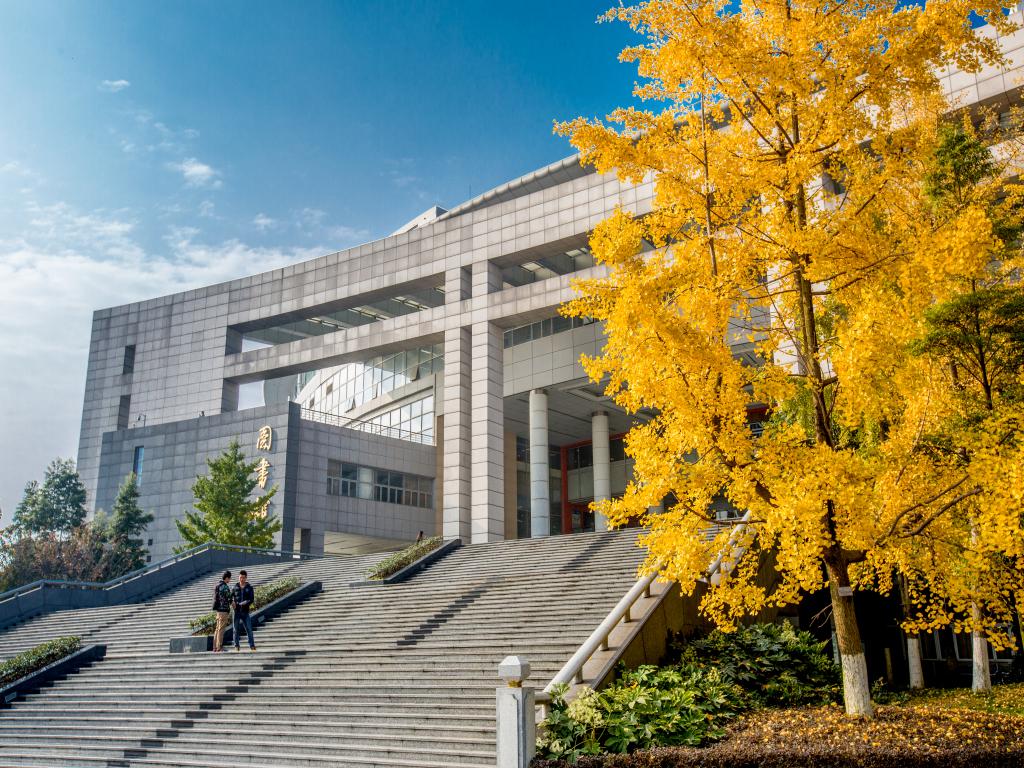Overview
Ensuing the founding of SWJTU, the Library was established, thus enjoying a time-honored history. As early as the twenty third year reigned by Emperor Guangxu in the Qing Dynasty (A. D. 1897), there were records about activities of books and documents construction.

Since SWJTU has built three campuses in E'mei, Jiuli and Xipu, three branch libraries have been constructed accordingly, covering 59,316 square meters in total. Concretely, the Library on the E'mei Campus with an area of 6,355 square meters was established in 1981; the Library on the Jiuli Campus with an area of 16,961 square meters was established in 1991, and was renamed Mao Yisheng Library in 2016; and the Library on the Xipu Campus with an area of 36,000 square meters was put into use in 2007, where main operations and administrative affairs of the library are handled.
Based on the development and accumulation for more than a century, the Library of SWJTU has formed the collection system boasting the great quantity, the reasonable arrangement and distinctive characteristics. The documents include thread-bound books, paperbacks and e-books; and the disciplines cover science, engineering, liberal arts, science of law, and medical science. In particular, documents of transportation are in rich collection. As of 2018, the paper books collected by the Library, branch libraries of all schools and departments and reference rooms have exceeded 3.1 million; electronic databases of all types that absorb Chinese and English documents have reached 198 (including self-established ones); and more than 1,330 e-books (equivalent) have been collected. Moreover, as one of the first-batch key units of ancients books under the protection of Sichuan Province, the Library has collected over 20,000 volumes of ancient documents, which include more than ten precious ancient books of good editions, such as 5,044 volumes of Royal Collection of Ancient and Modern Books, which was granted by the imperial court of the Qing Dynasty to SWJTU,Questions about the Six Classics,Discussion on the Tribute of Yu and Annotations on the Rites of Zhou block printed in the early Qing Dynasty.
As SWJTU lays emphasis on the integrated utilization of paper documents and electronic literature, SWJTU has developed the "tri-supplemented" document guarantee system supported by paper book resources, electronic resources and inter-library borrowing & document delivery services, whereby the branch libraries in three campuses have realized the free borrowing & returning of paper documents and the sharing of e-resources, as well as achieved the "homogenization" and "non-differentiation" contributed by the resources and services, which have pillared the teaching, scientific research, disciplinary development and innovative talents cultivation of SWJTU with abundant information.
As a "Sci-tech Novelty Retrieval Workstation of the Ministry of Education" under the formal approval and authorization of the Ministry of Education, the Library of SWJTU is supported with a group of professional novelty retrieval personnel, who provide sci-tech novelty retrieval service, agent retrieval & examination service and topic choosing service for R&D institutions and teams, as well as independent researchers inside and outside the campuses; provide evaluation & analysis on scientific achievements, development & planning of disciplinary situation, performance analysis for scientific research teams, and talent introduction assessment for functional departments; and carry out the embedded information literacy education, academic resource construction and outstanding researchers evaluation for schools of SWJTU, and actively expand prospective services like the scientific research data management.
The Library emphasizes on the information literacy education, making SWJTU one of the earliest colleges opening relevant courses like Information Retrieval and Competitive Intelligence in China. Specifically, the course, Information Retrieval, is a liberal education course of SWJTU, a national superior course and a national course for high-quality resources sharing.In recent years, the Library has placed emphasis on the humanistic quality education with the synchronized cultivation of reading and writing abilities as the core. Therefore, SWJTU has opened such liberal education courses as Reading and Appreciation, and Introduction to Classic Masterpieces; and taken the lead in establishing the "Reading and Writing Center" in China to coordinate teaching and extracurricular activities of the university related to the "cultivation of reading and writing abilities", offer hardware and software conditions to courses, and provide embedded writing tutor service and personalized counseling and tutorship online and offline.
Over the past years, the Library has very valued the enhancement of reading, creating the classics reading atmosphere calling for making full use of two holidays while keeping reading the year round, and full participation throughout the university. On the World Reading Day on April 23 and Confucius' Birthday on September 28, SWJTU holds a series of activities to promote reading, whereby the characteristics of SWJTU of pervasive, normalized and universal reading of classics have been developed, which has drawn the wide attention of domestic colleges and universities, and produced a relatively great social impact. The Library was awarded the title of "Advanced Unit for National Reading" in succession in 2012 and 2013, and the "National Reading Demonstration Base" in 2014.
In the future, the Library will adhere to the management concept of "People Orientation and Service Innovation" to persistently reinforce the document information resources construction, improve service quality and level, and establish the document resources guarantee system that is characterized by transportation and matches with first-class comprehensive research university. Meanwhile, SWJTU strives to ascend to the list of advanced comprehensive research universities in China that enjoy high level of automation and digitization, sound document resources construction, and favorable innovative service and capacity building.